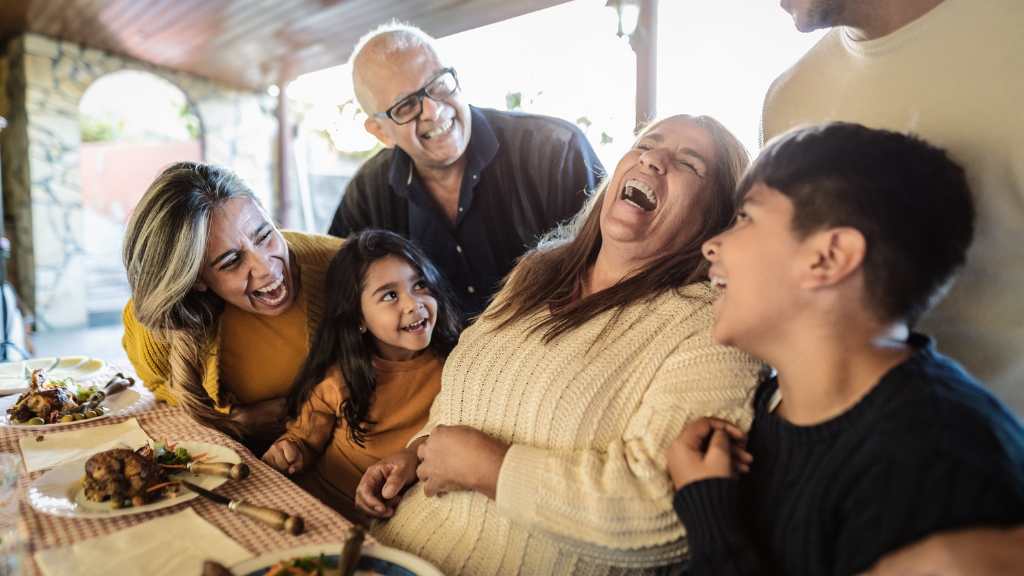Tabla de contenidos
¿Cómo Afecta el Estigma del Autismo al Diagnóstico en Niños Latinos?
En los últimos años, las conversaciones sobre el autismo se han vuelto más visibles e inclusivas. Sin embargo, muchas familias latinas todavía se encuentran con barreras invisibles al momento de comprender y brindar apoyo a un niño dentro del espectro autista Los desafíos a menudo no se derivan de la falta de amor o dedicación, sino de creencias culturales, barreras sistémicas y un estigma de autismo profundamente arraigado que continúa dando forma a cómo se percibe y aborda el autismo en muchas comunidades hispanas.
¿Cómo afecta el estigma del autismo al diagnóstico en niños latinos? La respuesta corta es que lo retrasa. El estigma hace que las familias se sientan avergonzadas o temerosas de buscar ayuda, los profesionales pueden malinterpretar el contexto cultural, y los sistemas que deberían apoyar a estos niños pueden fallar en llegar hasta ellos. Pero para comprender realmente el panorama completo y encontrar formas de avanzar, este blog de ABA Centers of Florida plantea un abordaje integral desde diferentes perspectivas.
Comprendiendo el Estigma del Autismo en las Familias Latinas
En muchas culturas latinoamericanas, los padres vinculan estrechamente la crianza de los hijos con la reputación, la disciplina y el honor familiar. Entonces, cuando un niño se comporta de maneras que divergen de las normas sociales, como no hacer contacto visual, tener dificultades con el lenguaje o tener una crisis en público, a menudo no se ve como una afección neurológica, sino como una mala crianza. Esta mala interpretación puede tener mucho peso en las familias.
Algunos padres escuchan a las personas decir que su hijo está "malcriado", que "no lo disciplinan lo suficiente" o, peor aún, que el diagnóstico es su culpa. Mitos como que el autismo es un castigo, una maldición o incluso, que es causado por las vacunas, todavía circulan en algunas comunidades. Según el American Journal on Intellectual and Developmental Disabilities, estas creencias crean una intensa presión para mantener el diagnóstico en secreto, a veces incluso de los miembros de la familia extendida.
El estigma del autismo no solo aísla socialmente a las familias; contribuye directamente a las disparidades del autismo en el diagnóstico y la atención. El Journal of Developmental & Behavioral Pediatrics muestra que los niños latinos son diagnosticados con autismo más tarde que sus compañeros blancos no hispanos y tienen más probabilidades de tener discapacidades intelectuales concurrentes en el momento del diagnóstico. Este retraso hace que sea más difícil aprovechar la intervención temprana, la cual está ampliamente comprobada para mejorar los resultados a largo plazo.

Aprende Sobre el Apoyo Para el Autismo en FL Barreras Sistémicas y Desconexiones Culturales
Más allá del estigma del autismo, las familias latinas a menudo enfrentan una compleja red de barreras sistémicas:
- Brechas lingüísticas: Muchos recursos para el autismo solo están disponibles en inglés. Menos del 10% de los proveedores pediátricos ofrecen evaluaciones del desarrollo en español, lo que deja a las familias sin acceso a evaluaciones tempranas críticas.
- Tensión financiera: Tanto en los EE. UU. como en América Latina, los costos del tratamiento pueden ser abrumadores. Casi la mitad de los cuidadores en América Latina reportan serios problemas económicos debido a los gastos relacionados con el autismo. En los EE. UU., los gastos de bolsillo, los problemas de seguro y la falta de especialistas locales dificultan la atención constante.
- Malentendidos culturales en la atención médica: Los padres latinos a menudo informan que se sienten juzgados o descartados por los proveedores de atención médica. Algunos médicos no reconocen los signos de autismo en los niños latinos o no investigan profundamente las preocupaciones de los padres. Esto hace que las familias se sientan "solas" al momento de buscar ayuda.
Incluso cuando los servicios están disponibles, transitar por ellos puede ser abrumador, especialmente para las familias inmigrantes que no están familiarizadas con los sistemas escolares o de atención médica de EE. UU. Los efectos combinados del estigma, el lenguaje, el dinero y el sesgo institucional forman una tormenta perfecta que con demasiada frecuencia conduce a la pérdida de oportunidades de ayuda temprana.
El Costo Emocional: Culpa, Estrés y Aislamiento
Detrás de cada diagnóstico tardío hay una familia haciendo lo mejor que puede bajo una presión enorme. Las investigaciones muestran que muchos padres latinos experimentan estigma por asociación; interiorizan la vergüenza que otros proyectan sobre la condición de su hijo. Este estigma conduce a la culpa, el aislamiento social y el agotamiento emocional.
Las madres, en particular, informan que se sienten juzgadas por familiares, vecinos e incluso maestros. Algunas familias dejan de asistir a reuniones sociales para evitar las miradas y los comentarios entre murmullos. Otros minimizan u ocultan el diagnóstico por completo, por temor al rechazo o la culpa de sus comunidades.
Con el tiempo, este aislamiento puede tener un costo no solo emocional, sino también financiero. La National Autistic Society afirma que casi el 35% de los cuidadores informan que renuncian a sus trabajos para cuidar a su hijo autista. Cuando los sistemas de apoyo faltan o son inaccesibles, las familias latinas tienen que llevar todo el peso solas
Disparidades del Autismo en la Educación y el Acceso a la Atención
Los efectos del estigma del autismo y las barreras sistémicas no terminan con el diagnóstico. Las familias latinas con frecuencia enfrentan desafíos para construir asociaciones efectivas con las escuelas. Muchos luchan por comprender el proceso del Programa de Educación Individualizada (IEP), se sienten excluidos de la toma de decisiones o creen que los maestros carecen de conocimiento sobre las necesidades de sus hijos.
Incluso cuando los padres están profundamente involucrados, el estigma y los impedimentos lingüísticos pueden dificultar la colaboración con los educadores. ¿El resultado? Los niños neurodivergentes pueden perder un apoyo educativo personalizado que podría marcar una gran diferencia.

¿A Dónde Vamos Desde Aquí? Soluciones Arraigadas en la Cultura y la Comunidad
Entonces, ¿qué podemos hacer para abordar las disparidades del autismo dentro de la comunidad latina? A continuación, se incluyen consejos que son valiosos para muchos, y que ayudan a mitigar estas barreras para acceder al apoyo de diagnóstico.
Atención del Autismo Adaptado a la Cultura y al Idioma
Una de las herramientas más poderosas para el cambio es la atención del autismo adaptada a la cultura y al idioma. Eso significa más que traducir folletos al español; se trata de comprender los valores culturales, las creencias y los estilos de comunicación. Cuando los proveedores se toman el tiempo para generar confianza y mostrar humildad cultural, es más probable que las familias participen en los servicios y sigan adelante con la atención.
Las intervenciones adaptadas culturalmente que respetan el idioma, las tradiciones y las experiencias vividas de una familia han mostrado un impacto real y medible, mejorando el bienestar emocional, la participación familiar y la calidad de vida en general. Cuando los especialistas diseñan la atención teniendo en cuenta la cultura, es más probable que las familias se sientan vistas, apoyadas y empoderadas para continuar su viaje. Las adaptaciones culturales son esenciales cuando se consideran tratamientos basados en evidencia como la terapia ABA, que puede ser más efectiva cuando se administra de una manera que resuene con los antecedentes únicos de cada familia.
Terapia ABA e Intervención Temprana
El Análisis del Comportamiento Aplicado (ABA) y la intervención temprana se consideran dos de los apoyos más basados en evidencia para los niños autistas. Pero su éxito depende del acceso y la confianza. Cuando las familias latinas acceden a servicios que reflejan su idioma y valores, y cuando la aceptación reemplaza el estigma, los niños prosperan.
En ABA Centers of Florida, ofrecemos pruebas de diagnóstico, intervención temprana y terapia ABA sin listas de espera y aceptamos la mayoría de las coberturas de seguros. Nuestro personal con comprensión de la diversidad cultural apoya a las familias con respeto y empatía, independientemente de sus antecedentes. Ya sea que hables inglés, español o ambos, estamos aquí para guiarte en cada paso del camino.
Obtén Apoyo para el Autismo con ABA Centers of Florida
Abordar el estigma y las disparidades del autismo en las comunidades latinas es más que sensibilización. Se trata de acción, de romper el silencio, desafiar viejas narrativas y reemplazar la vergüenza con apoyo. Todos los niños tienen derecho a desarrollarse, descubrir y encontrar aceptación por lo que son. Y todos los padres merecen las herramientas, los recursos y el aliento para hacerlo posible.
Si eres cuidador, educador o un aliado, debes saber que no estás solo. Ya sea que estés buscando un diagnóstico o explorando opciones de terapia, ABA Centers of Florida está listo para ayudarte. Juntos, podemos construir un futuro más inclusivo donde se escuchen todas las voces y se valore a todas las familias.
Comunícate con nosotros hoy para obtener más información sobre nuestros servicios y cómo podemos apoyar a tu familia llamando al (772) 773-1975 o comunicándote con nosotros en línea..








